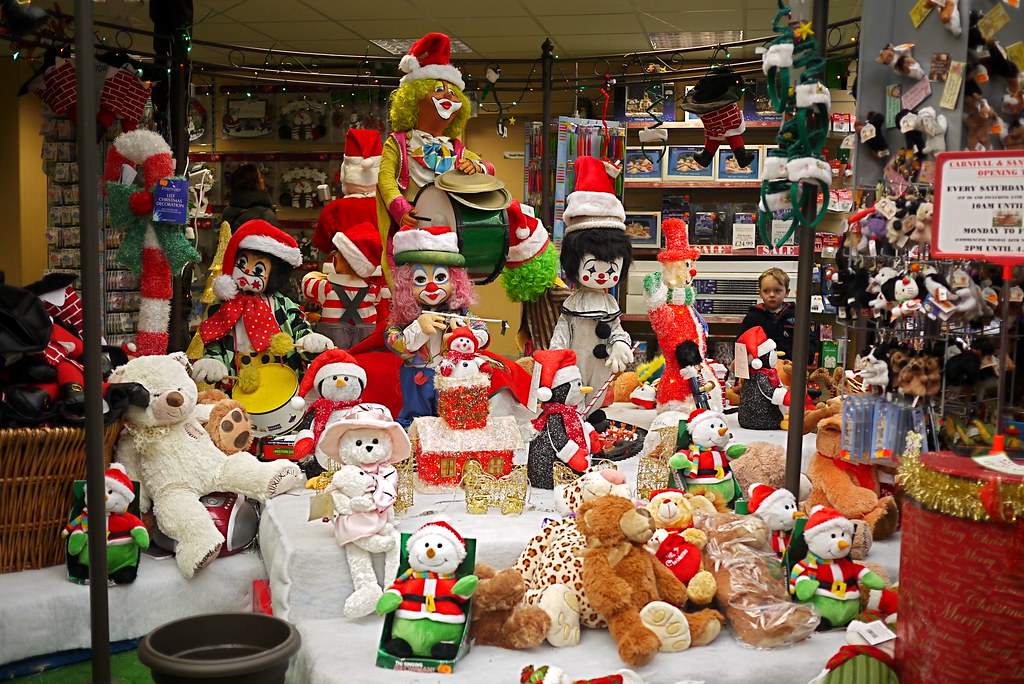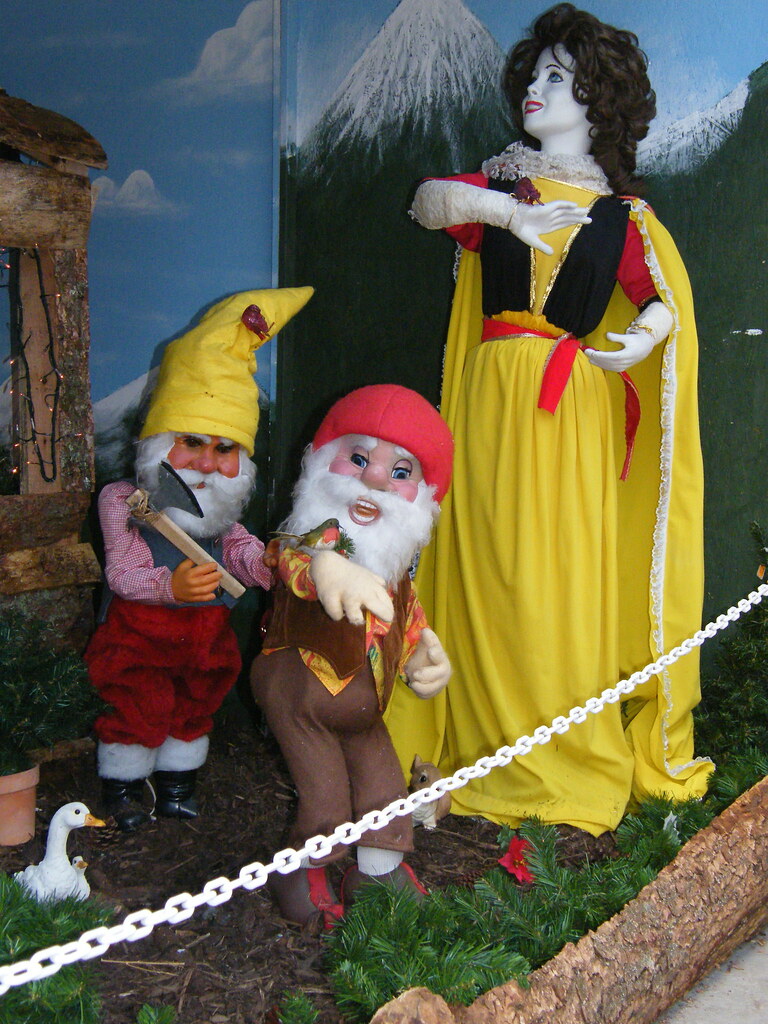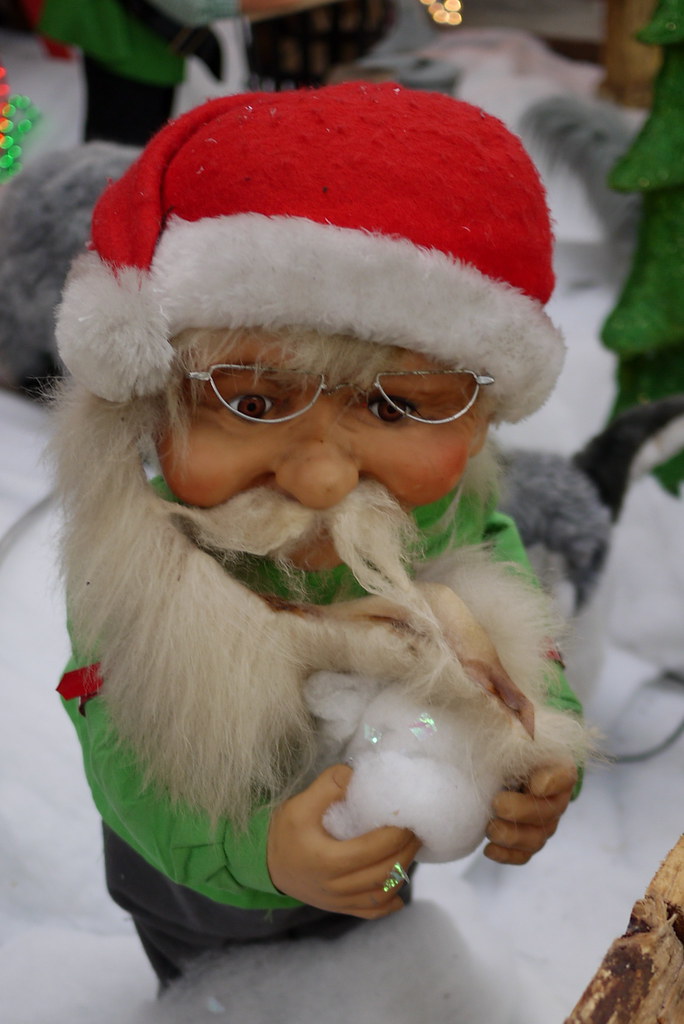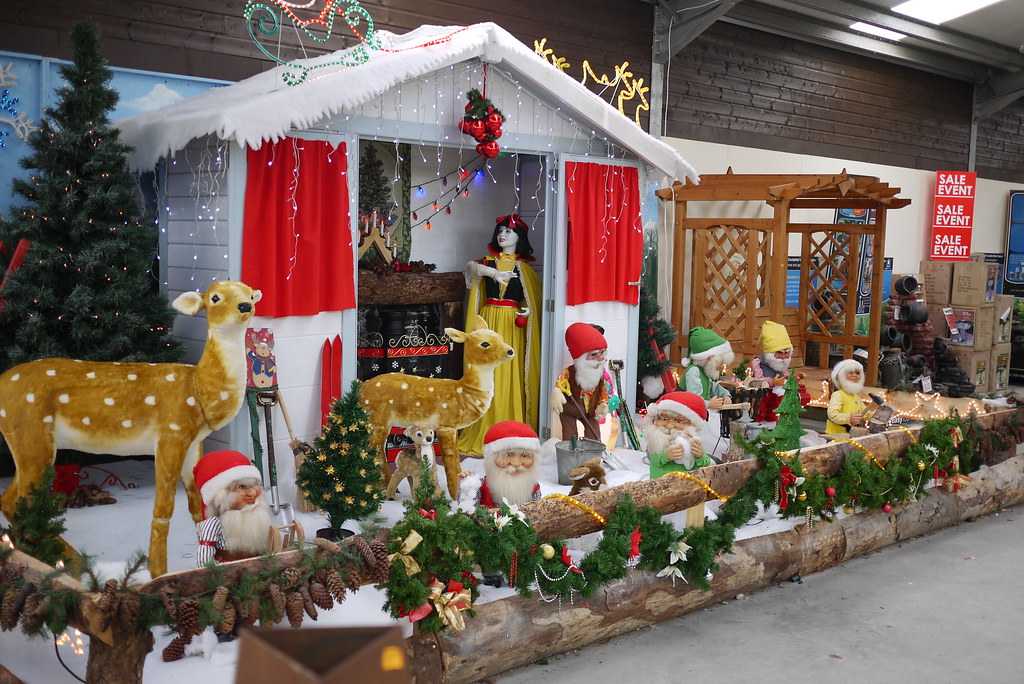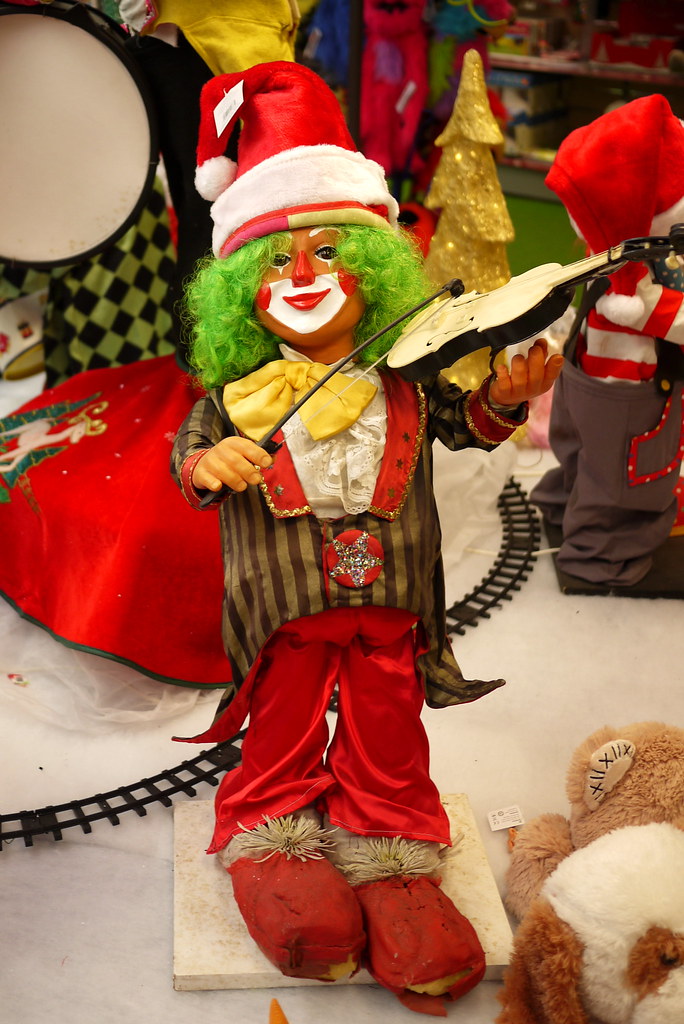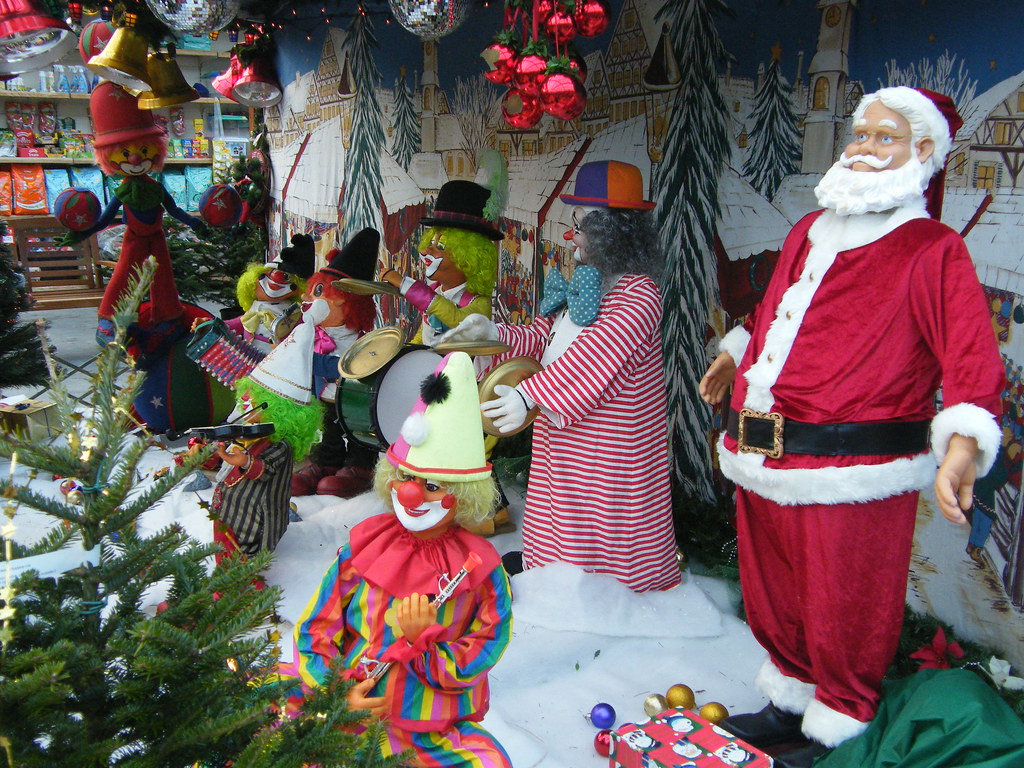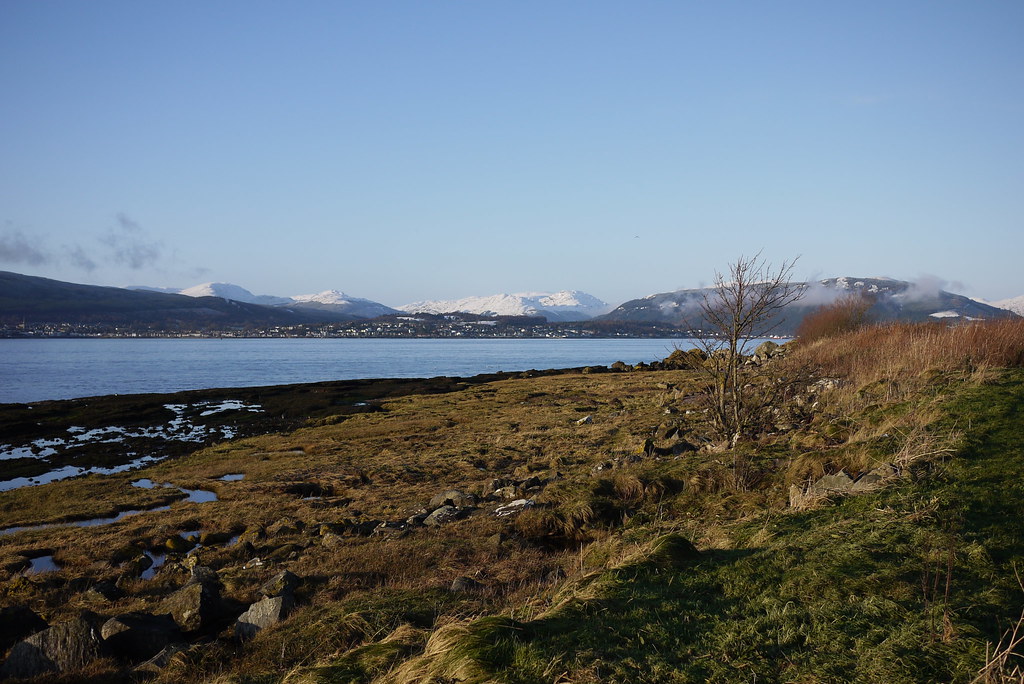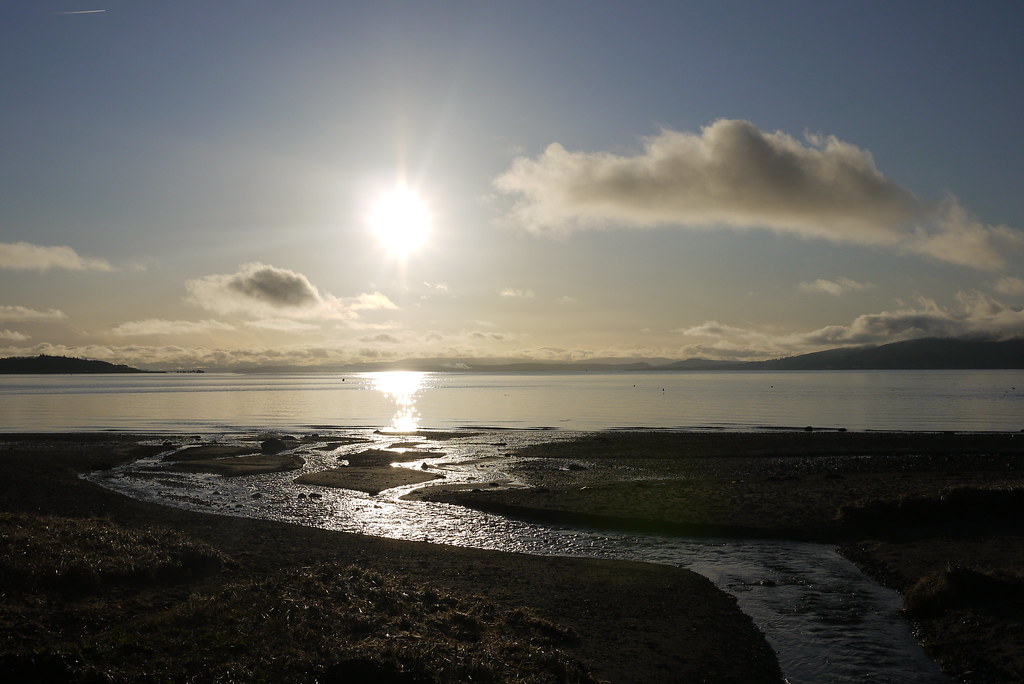It's that time of year again when things get festive and words like 'family' and 'giving' and 'I want a Lego mermaid!' (says Rosie) or 'Lego Star Wars! (says Tom) get bandied about.
Christmas for us is a very secular affair, and unlike Mr Seren and his very Catholic upbringing, it's something that always has been for me. In spite of my nan's best efforts and all of those children's Bibles and books of prayer my sister and I were given over the years, my parents never brought us up in a particularly religious fashion (although as I've said before, my mother was always keen to encourage us to explore). In all my years as a pagan of some sort, it's not something I've ever struggled to reconcile - whether or not I should celebrate because I'm not Christian - because it's not something I've ever had much choice about. Christmas in my world is about family, and my family expect me to be there, dagnabit. Being married, it's now also something that my in-laws expect of me as well. Some of the more fundamentalist Christians might repeat the refrain of keeping the Christ in Christmas, but tell that to my mother-in-law. We don't get any special dispensation for not being Christian as far as she's concerned...
It's an honour, to my mind. It's nice to have people who want you to be involved, to share in traditions, company, good food (and drink, often involving a litre of vodka while my father-in-law cooks the Christmas dinner before he promptly staggers off to bed to fall unconscious and sleep it off...), thoughtful gifts, and just enjoying the company of others. It's nice to see the kids all excited that Father Christmas is coming (even if Rosie's not too convinced about him). I'm lucky that my in-laws have accepted and welcomed me into their family, especially considering the fact that we'll be going to theirs for Christmas day. As a reconstructionist, family and community are important things, and I can't begrudge the fact that I get to show my appreciation of those loved ones that are there for me and my own wee family unit.
But it's not all fluffiness and fun. Like most folks, my family isn't perfect and we have our dysfunctions and our disagreements. It's times like this - for me - that those negative elements are most keenly felt (I will hopefully be going to visit my hometown after Christmas, and doing the rounds with visiting family etc), and in a spiritual sense it raises a lot of questions, especially as far as the issue of ancestor veneration is concerned. There are certain members of my family that (when they die) I couldn't bring myself to honestly honour in my practices - by name, specifically addressing them. I can acknowledge the fact that were it not for them I wouldn't be here, and in that sense I'm thankful (because that's kinda turned out to be a plus as far as I'm concerned), but then again those certain family members aren't exactly people I consider to be honourable or possessing much in the way of redeemable qualities. Perhaps honouring them on that level - thanks, at least, for doing your bit in my being here - would be a bit grudging of me at the end of the day. They aren't really people I want to think about, let alone consider the prospect of venerating them wholeheartedly.
Equally, I know there are people in my family - who I never had the chance to meet - who were thought of in the same way. My great-grandfather was a con man and a philanderer who abandoned his children and then proceeded to sow his oats around the world, leaving many fatherless children in his wake (and that's just the start of it). He died at the age of 102, alone, after falling asleep in his armchair with a lit cigarette; after it fell out of his mouth it set the chair on fire - what a way to go. My nan, when the police turned up on her doorstep to inform her of her father's death, simply said, "Good. I hope he burned." They hadn't spoken in 40 years. She doesn't talk about him much so I can only imagine the kinds of hurt he caused her to prompt a response like that. So there's another one that I might consider difficult to consider worthy of honour.
So when it comes to ancestor veneration, can we be selective? Should we be? After all, there are a lot of ancestors we could never possibly know. On the one hand, how can we honour people we never knew, who might not want our offerings and attention; how can we consider building a relationship with them when we don't even know their names, their deeds? On the other hand, is it something we should get hung up on? At the end of the day, without them we wouldn't be here today.
For me, I've instinctively formed a practice where I give honour to 'the honoured ancestors' in general, and I've never had the sense that there are any ancestors who begrudge my offerings to them. To me, the idea of 'the ancestors' is a fairly ephemeral thing, really. When I make offerings to them I do get the sense of 'them' being there, accepting the offerings I give, but as yet I've not encountered any of them making themselves known to me on an individual level, aside from the ancestors who I knew in life. 'The ancestors' as a concept is very general to my mind, in some ways. They are my roots. Without them, I am nothing. I cannot claim to know them, or know if they are worthy of honour on an individual level - each and every one of their deeds and how they lived etc. But in general, I can acknowledge the fact that they have all, in some way, played a part in making me who I am today. And that, for me, seems to work.
Those ancestors that I knew in life I see a little differently. I have a more personal relationship with them, since I knew them in some way or another when they were alive. They are the ones I talk to at times, and feel are near. Sometimes I make offerings to them specifically, giving things that I know they liked when they were alive. Sometimes, I feel like they're with me; a waft of a certain scent that I associate with them, perhaps. It can be very comforting.
In a reconstructionist sense, it seems that
some of the dead were treated differently than others at times - buried in mounds, their bones preserved and sorted amongst other bones, or some kept close by, in the house or in the midden. It might suggest the idea that they were installed in such places because they were considered worthy or important in some way, and perhaps the people who put those bones there, and later buried the cremated remains into the same mounds after they had fallen out of use otherwise, knew the names of the people who had been put there over the generations, and were given special remembrance and veneration by the community as a whole. Perhaps some of them were made gods, ancestral deities.
In my own way, I might not fiddle about with my gran's bones (for example), but I keep her memory alive; I honour her, and I tell my kids about her. And perhaps one day my kids will pass those memories, those stories, on to their kids, and make their own offerings with their great-gran in mind, and so on. As a Gaelic Polytheist, I don't have a long list of ancestors that I can reel off as the pre-Christian Gaels might have in their honouring their ancestors, but I can make a start at passing what I do know on. I'm sadly lacking in photos of my now deceased grandparents, and great-grandparents, and so on, but one day I hope to change that (with access to a scanner and mum and nan's photo albums).
But still, there is the issue of those who perhaps aren't 'worthy' of honouring. Not having had a personal relationship with my philandering great-grandad, I can appreciate the fact that without him I wouldn't be here, but otherwise I don't really want much else to do with him. Those I have more personal feelings towards is a different matter, I think. Perhaps they should be considered as they might in life: In terms of values, those who are thought of as having no honour are shunned, seen to be outside of the community and having no say, no rights within the community, and I certainly choose not to have much to do with those family members these days. And so in terms of honoured ancestors (that's how I generally address them), those without honour in life wouldn't really have a place as an honoured ancestor as far as I'm concerned. Maybe. Perhaps my views on that might change once I'm faced with their passing...
